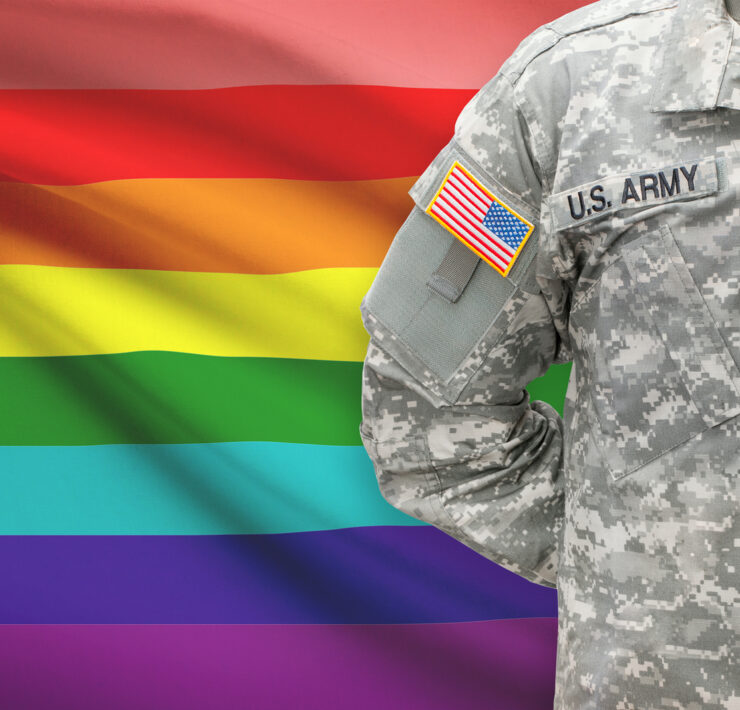Hig Roberts: Bringing LGBTQ Visibility to the World of Sports
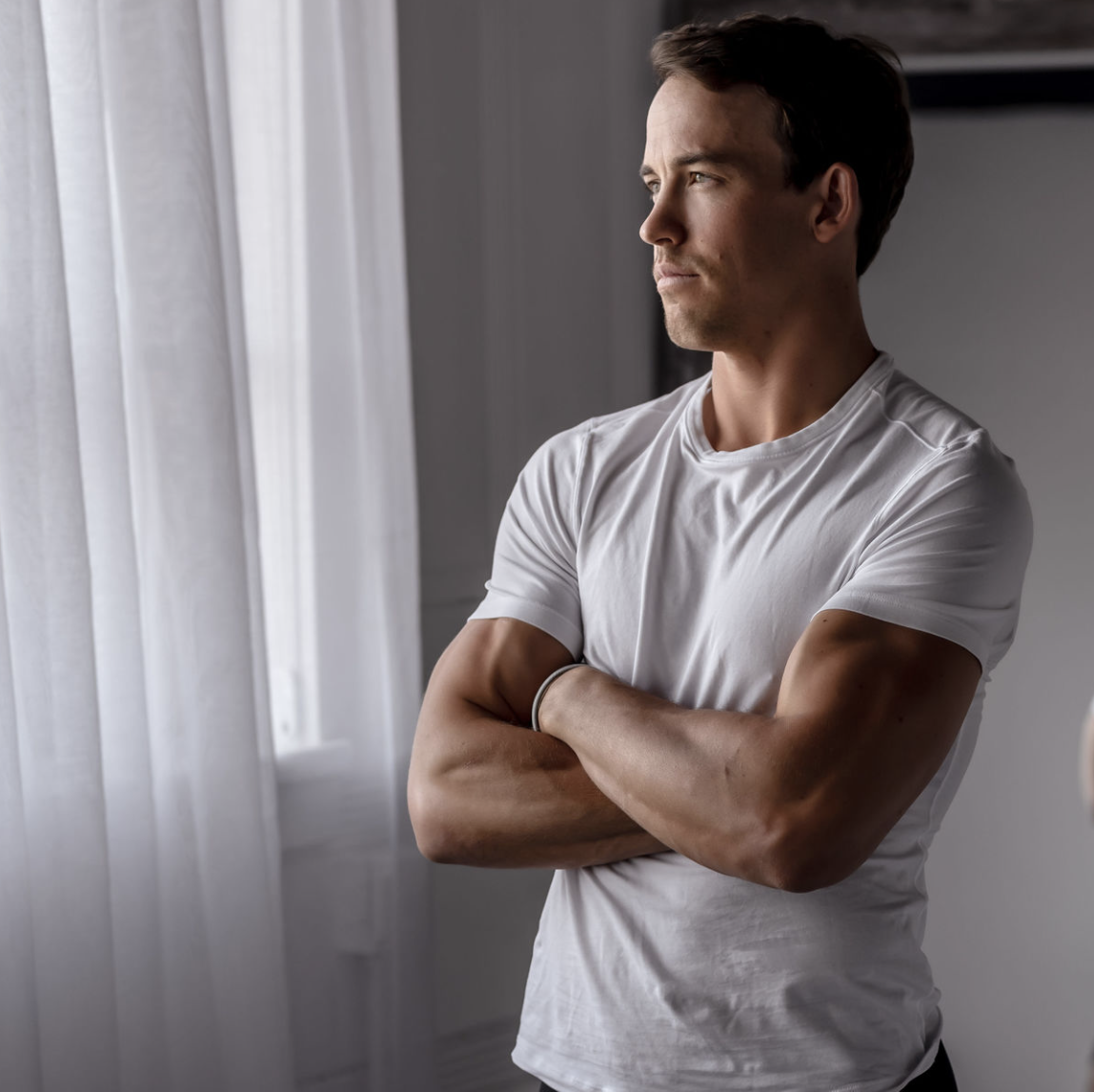
Denny Patterson is a St. Louis-based entertainment and lifestyle journalist…
In December, former two-time, U.S., national champion and Team America member Hig Roberts became the first elite men’s alpine skier to publicly come out as gay.
In an exclusive interview with the New York Times, Roberts said he decided to choose happiness over living a lie. He opened up about struggling with his sexual identity and hopes to create a more inclusive sports environment for athletes, and he is encouraging others to be themselves.
Raised in the skiing mecca of Steamboat Springs, CO, Roberts had a successful ski racing career. He was recruited to the U.S. Ski Team after college and skied the World Cup circuit, going on to become national champion in GS and slalom in 2017 and 2018, respectively. Skiing was a safe haven for Roberts, a place of freedom and escape.
However, with the rise of his ski racing career and two national titles under his belt, Roberts did not feel like a champion. Being in the closet took away a lot of the experience and joy he could have experienced. Guilted by shame, not living an authentic life took a staggering toll on his mental health.
OFM had the opportunity to catch up with Roberts and see how life has been since coming out and how he will bring LGBTQ visibility to the world of sports.
How has life been these past couple months since coming out?
It has been great. Honestly, telling my story, it was not something that I fully expected to do or go the way that it did. I got to that point by being vulnerable and being able to openly express that to not only my closest friends and people that were around me at the time, but also other athletes who went through similar experiences. I feel very grateful to have been given that platform to tell my story, which I think was a very important narrative that I wanted to get out to the world.
I think the biggest thing that has changed since the story came out was, it has given me the opportunity to start fresh with a lot of things in life. Reconnect with people who I previously worked with or competed against and begin to describe to them more in-depth what was going on with me and team up with them to make the sports world a better space in the future. I have also connected with some great advocacy programs and platforms. It has been very exciting.
What made you feel like this was the right time to let the world know that you are gay?
Because I was ready. I had buried a big part of who I was for so many years, and it caused a lot of shame and very difficult things for me—physically, mentally, and emotionally. Once I was able to work through that and understand that this is who I am—I am ready to be that person; I am ready to let go of all that discomfort that I was feeling within the professional athletic world—I felt an obligation to share that story.
At the end of the day, I want to give back to the sport of alpine skiing in a way that is not completely focused on myself or interested in goals of achieving medals and awards but giving back in a way that can potentially change the space for the betterment of other people in the future. This made the timing feel appropriate. Once I was able to articulate exactly what this journey was and what it meant to me, I was ready to do it.
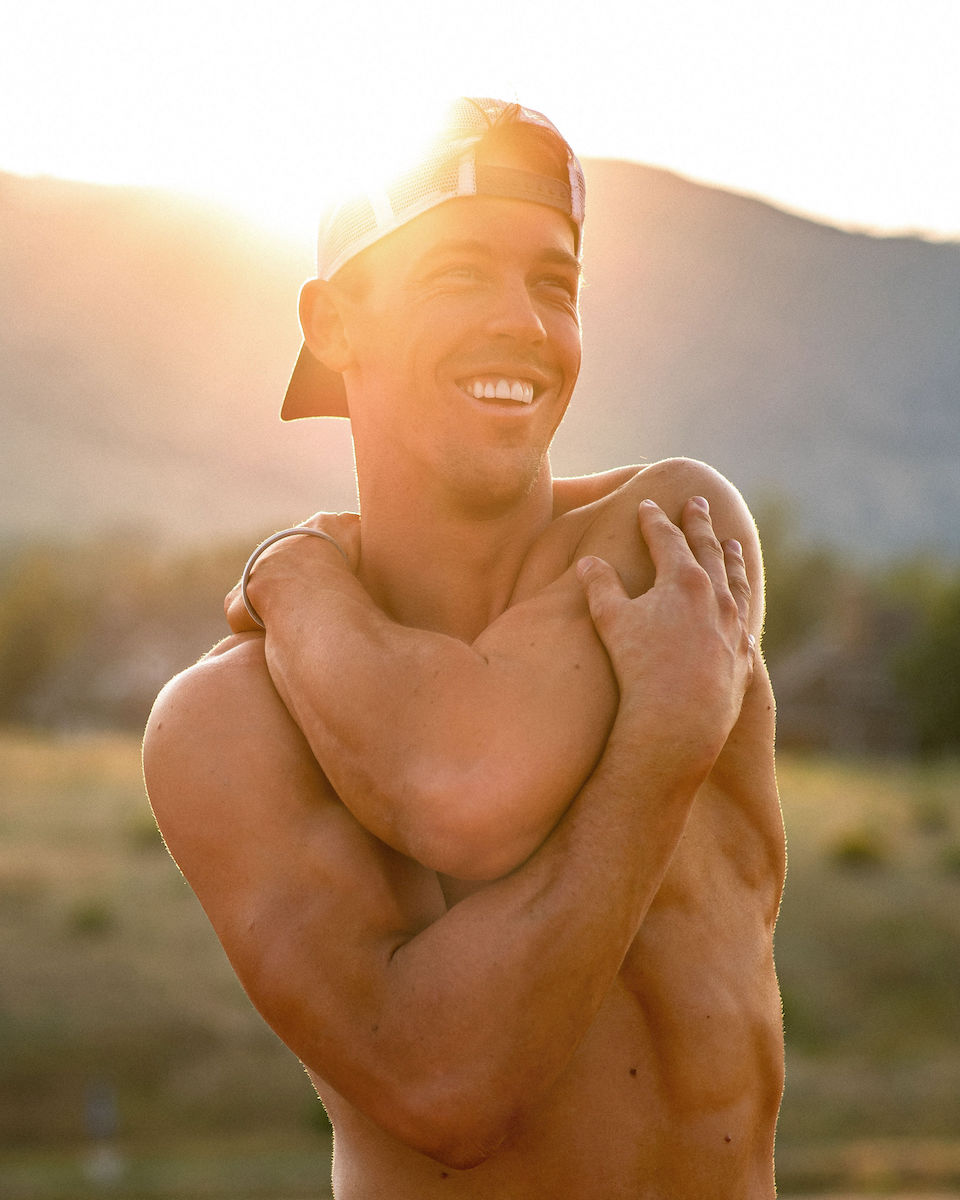 You have mentioned in other interviews that you began to question your sexuality at age 12. Do you remember the first time you thought you may be different?
You have mentioned in other interviews that you began to question your sexuality at age 12. Do you remember the first time you thought you may be different?
It is hard to exactly know the right age, but I knew I was a different kid. Not just with my sexuality. I have a twin sister, so I had a direct comparison to me all through growing up, and I recognized that I was not like my teammates around that age as well. It has been an interesting thing to explore because at the time, I rationalized it with quite a bit of ease knowing that I had a wonderfully accepting family even though I never knew anyone in my family or in my small town who identified anything other than straight.
To recognize that I was going to be OK, it was a great thing, but also because of the lack of visibility or representation around me, I did not necessarily know how bringing that to my family or friends would work. It was not until I got older and became a professional athlete when things started to get a little more complicated in terms of my relationship with my sexuality. That ease that I had at a young age essentially disappeared when there was more at stake involving my identity and where I was trying to be successful.
You received such positive responses from people around the world. Were your family and friends just as supportive?
Yes. It came together very quickly, and I received word that the piece would be in the New York Times maybe two days before it happened. It was an easy day for me, and I slept in past my alarm because I forgot it was happening. I was so ready for this moment, and it was even more rewarding to share it with my family, closest friends, and everyone who went through this process with me. It was phenomenal, and they all chipped in to help me connect with other family members and friends. It was a very gentle time in my life, and it was very rewarding to have that support.
Unfortunately, you lost your younger brother, Murphy, in 2016. What do you think he would have said?
Murphy represents a great dichotomy in my story in the sense that he was a kid who was very confident in himself. He knew exactly who he was, and he projected himself to every person. There was a lot that I saw in Murphy that I wish I could have had. Our older brother-younger brother relationship was not always perfect, but I looked up to him as much as he looked up to me. Murphy was a bug driving reason why I continued in the sports scene and why I got to where I did. After his death, I did ultimately say that I was done competing, but I got back on the hill because it was the right thing to do, and it was what he believed I was meant to do at this time in my life. It is unfortunate that he is not here to share this with me, but at the end of the day, I do believe that he knew. I am doing his life the biggest justice by doing this right now. It is the best I can get.
You touched on it a moment ago, but can you talk more in-depth about the emotional and mental challenges you experienced by being in the closet?
I became a professional athlete post-collegiate career. This activity, this sport that I did, suddenly became a career, and my career was on the line every single day that I was out there on the hill. It heightened everything in my body. It heightened the way I thought about how I existed in the space and what I needed to show other people. In a lot of ways, I was already so much on the outside within the Team USA structure. I was a collegiate athlete who made it, I ran into some funding problems, I had an interesting schedule compared to other athletes, and I had a brother who passed away.
I was very much dealing with that on my own because I felt like I did not have the support or resources within that realm. It was basically this massive dissonance of confusion in my brain about how to survive in a sport while being so different. I was fearful that my sexuality would lead me to lose sponsorship opportunities, or I would have coaches and teammates who were homophobic and did not want me in the same environment as them. It made me incredibly stressed and anxious, and it took away a lot of the focus that I should have had on competing and reaching my potential. They were hard times during those years.
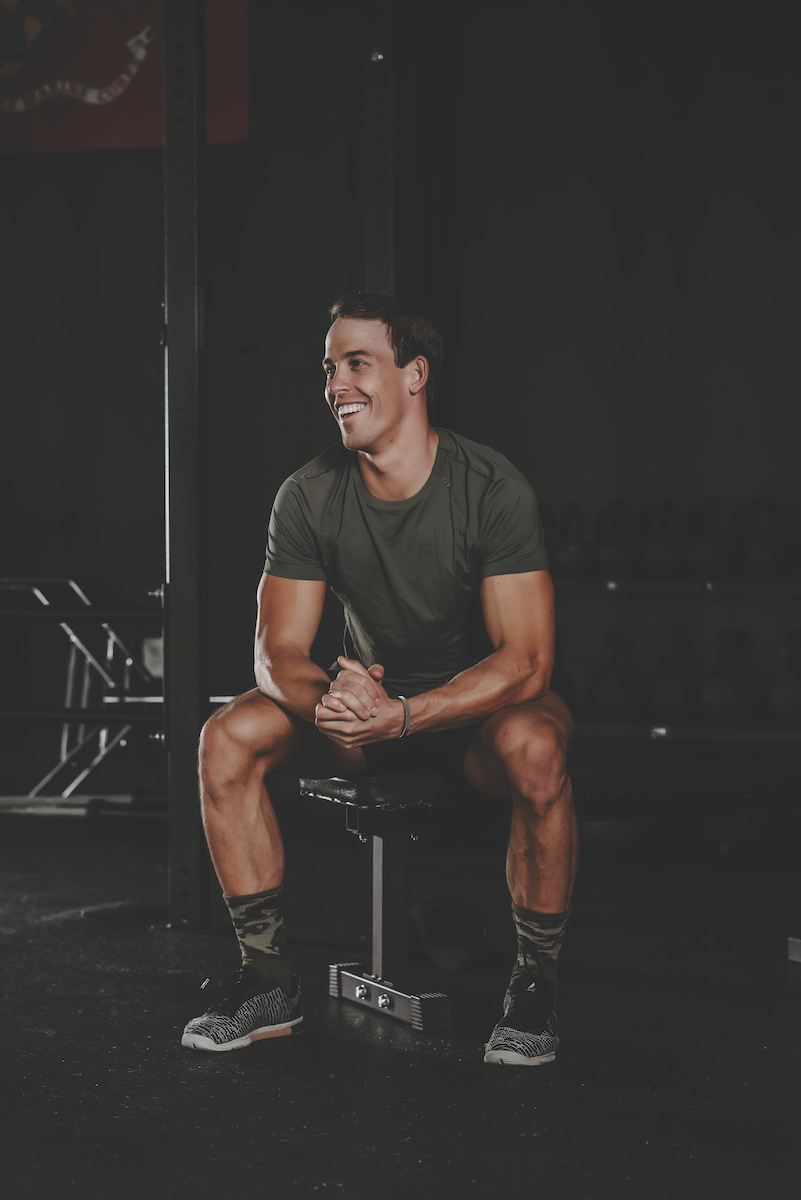
This not only hindered you personally, but it also affected your performance as an athlete.
Absolutely. Alpine skiing is tremendously physical and mental, and it demands so much mental acuity and physical strength all at once. Things can go great, or things can go incredibly poorly. To not be able to fully focus on what I needed to do on the hill because I was thinking about this identity crisis that I was going through was incredibly detrimental to my performance. That could have been the reason why I do not think I hit my potential or why I just barely missed the Olympics in 2018.
As a celebrated alpine skier working in an industry that still shows prevalent signs of toxic masculinity and homophobia, what kind of message do you hope your coming out conveyed?
I think everyone’s story is important. We lift each other up through this notion of visibility and support for each other, but a big reason why I struggled with understanding how it could even be possible for me to be this person in this world is because there was nobody who had done it before me. If I had known it was possible for men like me to exist in this very hyper masculine world, then maybe I could have come out sooner. Athletes like me are trying to increase that visibility, break that glass ceiling, and broaden the acceptable horizon of what an athlete can look like in today’s modern world. It is a collective effort, but unfortunately, there are still not a lot of us who are doing it. I came out post retirement, so there is a part of me who has regret in that, but it is a journey I had to take, and I have no regrets in that. I am just hoping that I can be a model for a kid like me feeling the same way I did.
Do you think there will ever be a time where the world of sports will break down those negative stigmas toward LGBTQ athletes and create more inclusive environments?
That is the hope. At the end of the day, my sexuality is just a small part of who I am. On the ski slope, my sexuality really should not factor in at all. In the future, I hope your sexual preference or who you are as a person will be no more different than what type of ski brand you choose to ski on. That is the hope. That stories like mine do not become events, and that from a young age, we can see kids be comfortable being in the sports world exactly how they are. It is going to take more time and work to get there.
How has coming out impacted your mental health for the better?
The best piece of advice, and this is relatable to anyone in this world: being authentic and being able to look in the mirror, love yourself, and be your biggest fan is so critical for anyone. For me, being honest about who I was and leaning into that for the first time has allowed me to just love and believe in myself more. I can look back on my ski career and other parts of my life and think, I was not able to give life my full attention and I was not able to reach my potential because I was not being honest with myself or with the people around me. Letting go of that is very critical to having a great mental state.
Coming out is a process, and I have learned it is a journey. I am learning every day more about who I am and what it is I want to do. It is exciting, and I made the right decision to do it. I encourage people who are in the same spot to take the time to do it at their own pace and to find a great community and realize that there are more people out there who are going to love you and accept you and embrace this bravery and commitment to being authentic than you could ever imagine. That is a huge lesson I learned. I discounted how many people out there would love and support me when it happened, and I wish I had given that more of a consideration long ago.
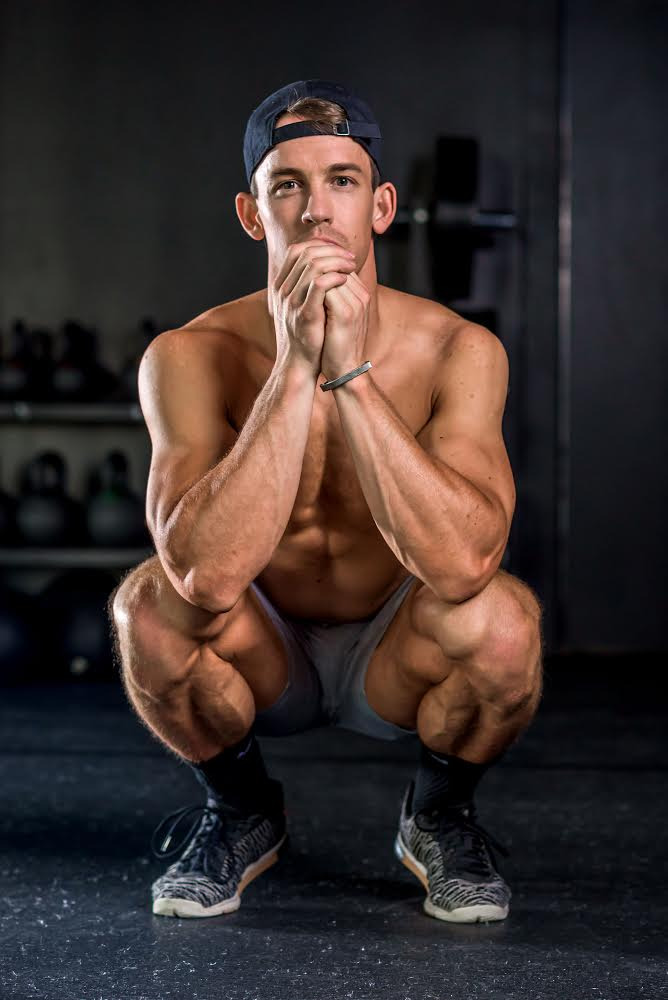
How did you discover your passion for skiing? It was when you were a very young age?
I was skiing basically before I could walk [laughs]. I cannot pinpoint when it really clicked for me, but I will say, to this day, it is something I am so passionate about. It was so easy for me to pour everything I had into it. I also grew up in a very competitive family. My grandfather was an Olympic hockey player, my parents were both athletes, and I was one of four kids who all played sports. Being an athlete and putting my energy into sports was one of the most incredible things that happened to me. It allowed me to get through these tough times.
Although you retired from sport in 2019, are you looking to transition back into the industry in any capacity?
Yes. I am looking to get back into the sports industry in a sports business, agency, or management role. More specifically, I would like to get more involved with the Olympics and with Team USA and IOC. I just relocated to L.A., and we are having an Olympics in 2028, so there is a lot going on there in helping change the way the Olympics are run and the way athletes operate, which I find very relatable and exciting towards the goals I have for improving the sports world. I worked in investment banking right after my skiing career, and I realized that my passion lies in sports. I want to find an avenue back in there to pursue that passion in a new way.
What more do you hope to accomplish with your platform?
I want to be relatable to whoever I encounter and allow myself to be accessible and open to athletes and other people who relate to my story. I would like to help and mentor in whatever ways I can. I needed that so desperately. In bigger terms, I want to work towards this move of keeping sports open at a young age. From the earliest stage to professional level.
Other than that, just telling my story and speaking and engaging with other advocacy groups. I think it is important that we take a very comprehensive approach to allowing this to happen because sports, in my opinion, are a good vehicle for enacting lots of great changes in our society. It would be a missed opportunity to not use sports in that aspect.
Before we wrap up, is there anything else you would like to mention or plug?
No, I think we covered it all!
Stay up-to-date with Roberts by following him on Twitter and Instagram.
What's Your Reaction?
Denny Patterson is a St. Louis-based entertainment and lifestyle journalist who serves as OFM's Celebrity Correspondent. Outside of writing, some of his interests include traveling, binge watching TV shows and movies, reading (books and people!), and spending time with his husband and pets. Denny is also the Senior Lifestyle Writer for South Florida's OutClique Magazine and a contributing writer for Instinct Magazine. Connect with him on Instagram: @dennyp777.





